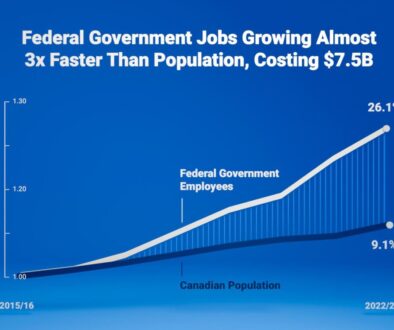The Canadian Mindset
Some months ago I made mention of “Andy”, a friend of mine who was raised in Chicago but moved to Ontario with his parents in the early 70s. He told me that over time, his exposure to Canadian culture transformed him in subtle ways. He suddenly noticed this after he saw a man by the road struggling to replace a flat tire. He pulled over to ask him if he could be of any help. When the man said “No”, Andy reflexively replied “I’m sorry”, and then drove away. Later he looked in the mirror and asked himself, “Why the hell did I say that I was sorry? I offered the man help for god sakes!”
But Andy’s emasculation was not as severe as he implied. It has become apparent that beneath this layer of Canadian meekness there still lies a bedrock of Americanism. Case in point.
After having taken care of this island community’s garbage disposal for many years, the mega American-based corporation “Industrial Waste Management” recently announced that they will be tripling their pick up fees. Quite a shock for all of us.
So how did island residents react? They did the Canadian thing. They complained to their political representatives in local and provincial governments. They wrote letters and made phone calls. One even started up a petition. After all, if there is a problem, it is the responsibility of government to solve it, right? Our elected representatives must hector a big corporation and demand that it reverse its new price structure (good luck on that).
But what did Andy do? He conducted a week of intensive research and developed a business plan to start up his own garbage disposal business. He took account of every cost factor, and calculated the profit margin he would need to make the business viable. Result? Within two weeks following Industrial Waste Management’s rate hike announcement, he is on the brink of making the business operational.
The relevant question to be asked here is not why it took the likes of him to step up and fill a need, but why 2500 Canadians on the island didn’t.

Answer: Most of us have been raised and conditioned by a culture of dependency. The can-do spirit of risk and initiative that built this country has been bred out of us. We not only trust government, but rely upon it. And if any of us have the ambition to start up a project, we first apply for a grant. It should come as no surprise that composing grant applications has become a major business.
So if you are puzzled by our shocking embrace of authoritarianism and our easy seduction by free-lunch promises, don’t be. Justin Trudeau did not impose it on us, he only exploited our appetite for it. The sad truth is that we want someone to take care of us, especially in an emergency. Real or contrived.
Sociologist Karl Mannheim once remarked that to be successful, revolutionaries must draw upon currents that already run through the society they wish to remake. In Canada, the current of deference, obedience, passivity, credulity and dependence runs wide and deep. Whilst America’s constitutional motto was “Life, Liberty and the Pursuit of Happiness”, Canada’s was “Peace, Order and Good Government”.
That should not come as a surprise because our “founding fathers” were counter-revolutionaries who sought refuge in what remained of British North America after the Yanks defeated them. We adopted the top-down British model of governance, where our “betters” would be trusted to rule in our best interests. “Government knows best” or “the CBC knows best” is baked into our cultural DNA.
That assumption, my friends, is why we are f****d. Our socio-economic and ecological system is unravelling, and when it collapses, we will find ourselves helpless, largely because we never grew up. We never learned to think or take care of ourselves. Ask any prison warden or parole officer. Releasing a convict who has been in the can for a decade or two can be a mixed blessing. Freedom can be challenging for anyone who hasn’t had to rely on himself.
I hate to say it, but what Canadians need is a hard kick in the ass.
I am not talking about abandoning social responsibility or pursuing a model of rugged individualism and dog-eat-dog capitalism, but a return to the kind of self-reliant community that my parents and grandparents knew. During the war, my parents had their own farm, but they helped other farmers, and received help from them in return when the need arose. They did not sit around waiting for a government grant. If a neighbour needed to raise a barn, the community joined in.
According to today’s prevailing narrative, those were the Dark Days when Canada was rife with “toxic masculinity” “homophobia”, “racism”, “micro-aggressions”, free speech and patriotism. What a nightmare that must have been. LOL.
TM



